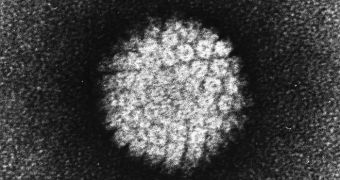At a recent conference, investigators presented a new study, showing that very few of the women who are eligible to receive the HPV vaccine actually go on to take the shot. This happens in spite of public health campaigns, and numerous evidence to support the effectiveness of the vaccine.
The issue is not with the women alone. Those who are old enough to decide for themselves can refuse taking the shot at their own risk. But even some parents are unwilling to vaccinate their younger daughters, under various pretexts.
One that is circulated among religious groups, especially Christians in the United States, is that the shot encourages promiscuity. This is one of the most misguided, ill-informed and ignorant reasons that researchers ever had the misfortune of hearing.
To these people, the fact that their children could lose their lives due to HPV infections contacted in the most “socially- and morally-acceptable” ways possible is nothing but an improbability.
Taking the HPV vaccine is fairly simple. Young women need to take three shots at various intervals, and then all is done. But the new research also shows that, of the women who do start taking the medication, only a part actually finishes the course.
“Only about one-third of young women who begin the three-dose series actually complete it; this means that large numbers of teenagers are unprotected or under-protected from strains of HPV that lead to cervical cancer,”” explains researcher J. Kathleen Tracy, PhD.
She holds an appointment as an assistant professor of epidemiology and public health at the University of Maryland School of Medicine (UMSOM), in Baltimore.
Official statistics show that nearly 30 percent of 14- to 19-year-old women in the United States are infected with HPV any given year. If infections persists for longer periods of time, they lead directly to the development of cervical cancer.
Of 9,658 teenagers and young women the team analyzed, 39.1 percent got a single dose of the vaccine, 30.1 percent got the second shot too, and only 30.78 finished the entire vaccination process.
The issue now is getting more people to take the vaccine, Tracy says. She and her team are currently working on a study meant to determine whether text message alerts boost completion rates for the vaccination.
She adds that parents need to be engaged more in this process, as do doctors and clinicians. The expert says that young girls need to become perfectly aware of the fact that avoiding the HPV vaccine could cost them their lives.
The group presented its findings between November 7-1o in Philadelphia, at the Ninth Annual AACR Frontiers in Cancer Prevention Research Conference.

 14 DAY TRIAL //
14 DAY TRIAL //